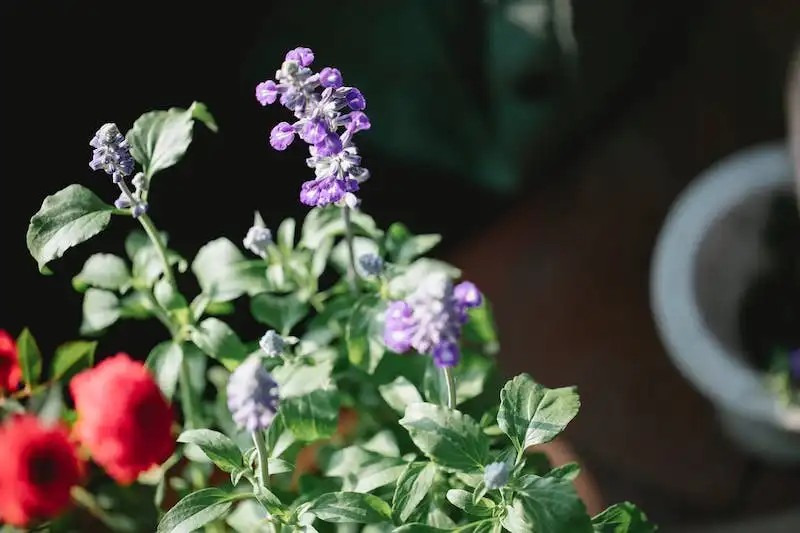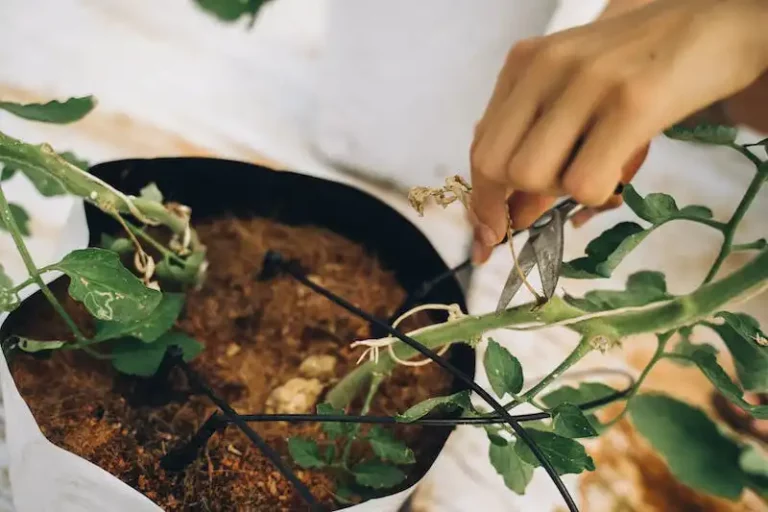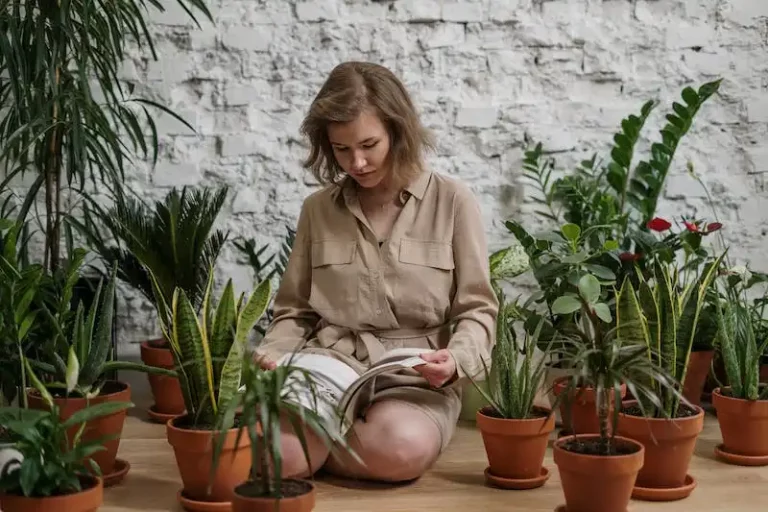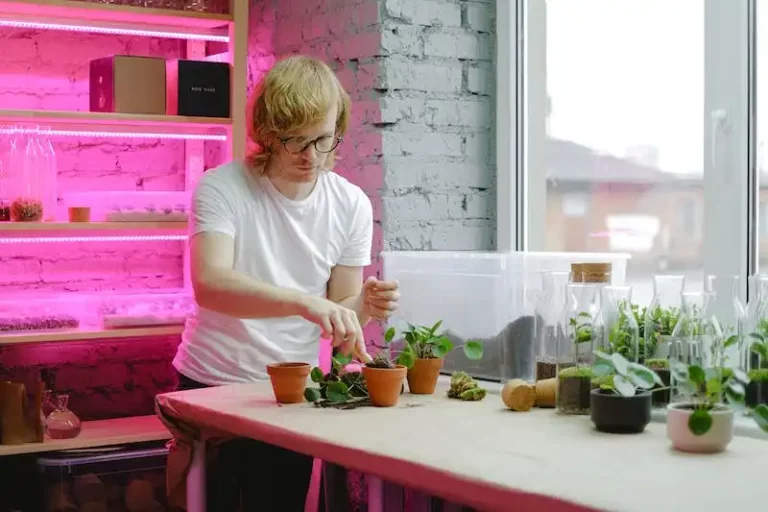If you are a dahlia grower, you know how beautiful and versatile these flowers can be. With their long-lasting blooms and excellent heat tolerance, dahlias are a favorite among professional and amateur gardeners alike. But when and where should you plant your dahlias? And how deep should you bury the tubers?
First, let’s answer the question of when to plant dahlias. Dahlias are known to be cold-sensitive, and they can be easily damaged by freezing temperatures. Therefore, it’s best to wait until the danger of frost has passed before planting them. You can start planting dahlias in the spring when the soil has warmed up enough, or you can wait until late spring or early summer if you want to enjoy blooms earlier in the season.
Now let’s move on to the question of where to plant dahlias. Dahlias thrive in full sun, so choose a location in your garden that gets at least six hours of direct sunlight per day. They also need well-draining soil to prevent waterlogged conditions that can cause the tubers to rot. If you have heavy clay soil, consider building raised beds or amending the soil with organic matter to improve drainage.
Finally, let’s talk about how deep to plant dahlias. The general rule of thumb is to plant the tubers about 6 inches deep. However, if you live in an area with hot summers and dry conditions, you may need to plant them deeper, around 8 inches, to provide enough moisture for the plants. If you prefer smaller, shorter dahlias, you can plant them shallower, around 4 inches deep. Just make sure to leave enough space between each tuber to allow for proper growth.
When planting dahlias, it’s a good idea to stake them to prevent damage from wind and heavy rain. This is especially important for taller varieties, which can get top-heavy and flop over if not properly supported. You can use bamboo stakes or metal stakes with twine or soft ties to gently secure the plants.
In summary, planting dahlias requires careful consideration of where and when to plant them, as well as the proper depth for burying the tubers. By following these tips, you can ensure that your dahlias will thrive and provide you with beautiful blooms all summer long.
When and How to Plant Your Dahlias And Strategies To Get Dahlias to Bloom Earlier
Planting dahlias is a safe and professional way to ensure a beautiful display of flowers in your garden. Knowing when and how to plant dahlias can make all the difference in the success of your garden. Here are some strategies to get your dahlias to bloom earlier, allowing you to enjoy their vibrant colors for much longer.
When to Plant Dahlias: Dahlias should be planted in the spring after all danger of frost has passed. For areas with colder climates, it is best to wait until the soil has warmed up. Planting in early to mid-May is ideal.
Where to Plant Dahlias: Dahlias thrive in well-drained soil and full sun. Choose a location that receives at least six hours of direct sunlight each day. Ensure there is enough space for the plants to grow, as dahlias can reach a height of 3-4 feet.
How Deep to Plant Dahlias: When planting dahlias, it’s important to dig a hole that is deep enough to accommodate the tubers. The hole should be about 6-8 inches deep. Place the tuber in the hole with the eye facing up, and cover it with soil. If you’re planting multiple dahlias, space them about 2-3 feet apart to allow for proper air circulation.
Caring for Your Dahlias: Dahlias require regular watering and fertilizing to thrive. Water the plants deeply once or twice a week, ensuring that the soil is evenly moist but not waterlogged. Use a balanced fertilizer every 4-6 weeks to promote healthy growth. Adding a layer of mulch around the plants can help retain moisture and suppress weed growth.
Strategies to Get Dahlias to Bloom Earlier: If you’re eager to see your dahlias bloom earlier in the season, here are some strategies you can try:
1. Overwintering: Overwintering your dahlia tubers can help them mature faster and sprout earlier in the spring. Before the first frost, carefully dig up the tubers and store them in a cool, dry place for the winter. Make sure to label them with their name or other identifying attributes.
2. Starting indoors: Another strategy is to start your dahlias indoors before the last frost date. Plant the tubers in pots or containers and keep them in a warm room with plenty of sunlight. This will give them a head start and allow them to develop strong stems before transplanting them outdoors.
3. Pruning: Pruning your dahlias early in the season can promote bushier growth and earlier blooming. Once the plants have grown to about 12 inches tall, pinch off the top few inches to encourage branching and the development of more flower buds.
4. Providing extra heat: Dahlias thrive in warm temperatures. If you live in an area with cooler summer temperatures, you can try adding a layer of black plastic or using a heat lamp to create a warmer microclimate around your plants. This can help accelerate their growth and encourage earlier blooming.
By following these strategies, you can increase your chances of getting your dahlias to bloom earlier in the season. Enjoy their beautiful flowers for longer and share their vibrant colors with family and friends.
When do dahlias bloom
Dahlias are known for their vibrant and beautiful flowers, and the timing of their bloom can vary depending on several factors. The time it takes for dahlias to bloom can be influenced by the climate, soil conditions, and the specific variety of the plant.
In general, dahlias thrive in warm and sunny conditions. They prefer well-draining soils that are rich in organic matter. If you are growing dahlias in pots, use a high-quality potting mix that provides good drainage. Proper fertilization is also crucial for promoting healthy growth and abundant flowering. Dahlia plants should be fertilized regularly, following the manufacturer’s instructions.
The flowering of dahlias usually begins in late spring or early summer, depending on the specific zone and climate in which they are grown. Warmer regions typically see earlier blooms, while cooler areas may need to wait until late summer or early fall to see their dahlias flowering.
To encourage earlier flowering, some gardeners employ a technique called “pinching.” This involves removing the top inch or two of growth from the main stem when the plant reaches a certain height. This can cause the plant to branch out and produce more flower heads.
It’s worth noting that dahlias are known to be heavy feeders, so it’s essential to provide them with enough nutrients throughout the growing season. Regular deadheading, the removal of spent flowers, helps promote continued blooming by redirecting energy towards the production of new petals. This practice also reduces the risk of diseases and pest problems.
In addition to proper fertilization and deadheading, it’s crucial to provide dahlias with the right growing environment. They prefer well-drained soil and can suffer from problems like root rot if the soil becomes too waterlogged. Adequate air circulation is also important, as this helps prevent conditions like powdery mildew.
Humidity can also impact dahlia flowering. High levels of humidity may cause the flowers to open less fully, while lower humidity may result in flowers with more open petals. Insecticidal soap can be used to combat pests, and proper weed control is important to minimize competition for nutrients and moisture.
Overall, the exact timing of when dahlias bloom will depend on a variety of factors. By providing the right care and following these tips, you can help ensure that your dahlias bloom to their full potential, adding a burst of color to your garden or landscape.
Early Dahlia Strategy 1: Pot up your dahlias
Potting up your dahlias early can be an excellent strategy to get a head start on the growing season. By repotting your dahlias and starting them off inside, you can extend their flowering period and protect them from cold spring conditions.
To begin, you’ll want to start this process about five weeks before your last frost date. In the morning, dig up your stored dahlias and carefully remove any rotten or damaged tubers. Look for healthy, firm tubers with eyes already showing signs of growth.
Next, pot your tubers in a well-draining potting mix. Choose a pot that is deep enough to accommodate the tuberous roots and leaves. It’s best to use a larger pot to allow the dahlias to grow without becoming root bound.
Place the pot in a sunny location that receives at least six hours of sunlight per day. Keep in mind that dahlias are heat-loving plants, so a warm, south-facing spot would be ideal. If you’re planning to plant your dahlias outside, you can still start them off inside under heated conditions.
Water your potted dahlias regularly, keeping the soil moist but not waterlogged. Be sure to check the moisture level frequently, especially during hot weather, as potted plants may dry out more quickly. Adding a layer of mulch on top of the soil helps retain moisture and keeps the roots cool.
As your dahlias start to grow, you may need to provide support for their upright stems. Using stakes or cages can help prevent them from flopping over and getting damaged by wind or rain. These structures can be inserted into the pot without disturbing the root ball.
To ensure your potted dahlias stay healthy, monitor them for any signs of pests or diseases. Regularly inspect the leaves for insecticidal damage or the presence of fungi. If you notice any issues, treat them promptly with appropriate measures to keep your plants safe.
Once the danger of freezing nights has passed and the weather is consistently warmer, you can transplant your potted dahlias into the garden. Be sure to harden them off gradually by exposing them to outdoor conditions for short periods of time before fully planting them outside.
Growing dahlias in pots requires some maintenance, but it is a rewarding task. With the right care, your potted dahlias will thrive and produce beautiful flowers throughout the growing season. This early strategy of potting up your dahlias can help you get a head start on growing these stunning plants.




